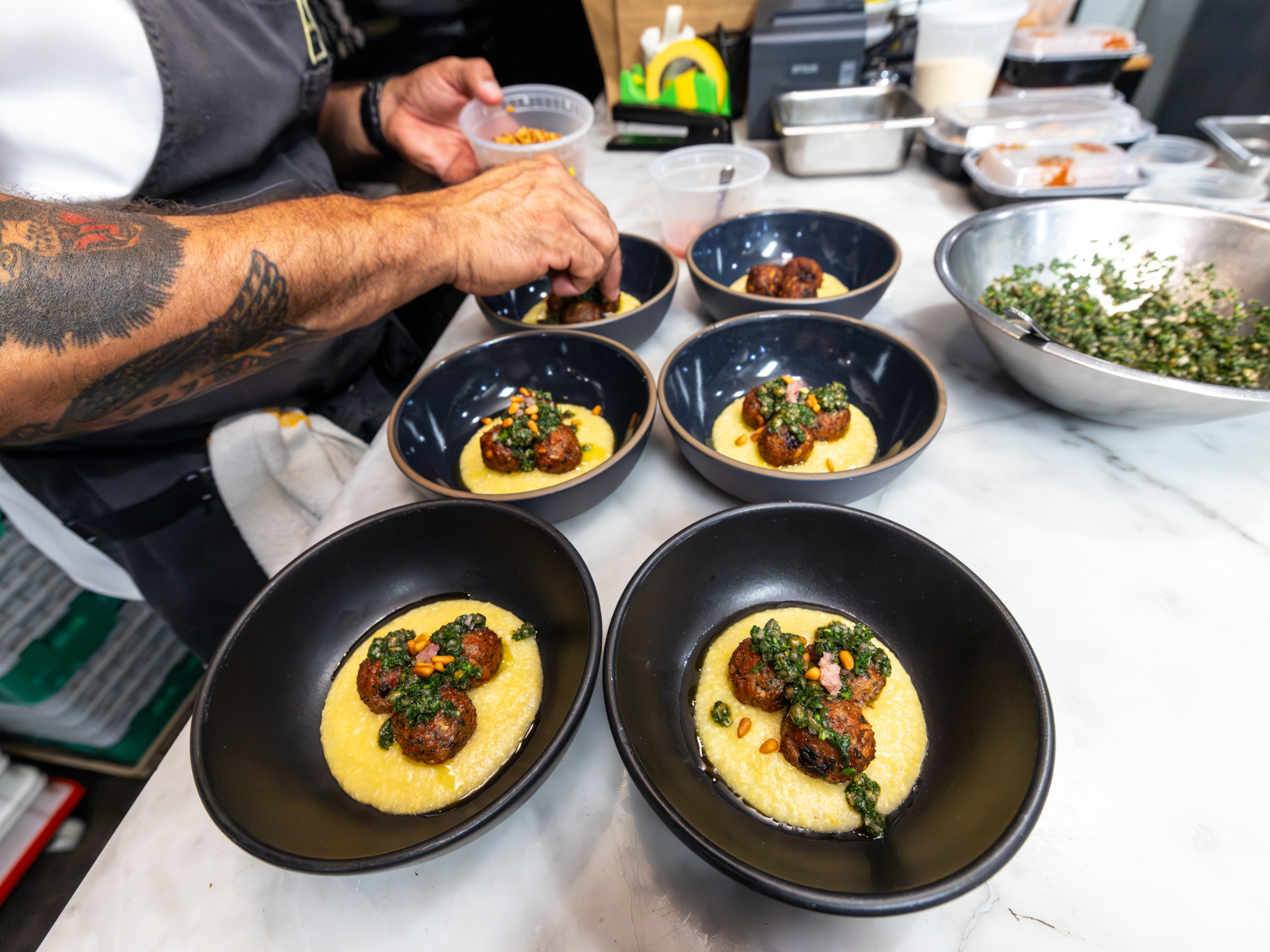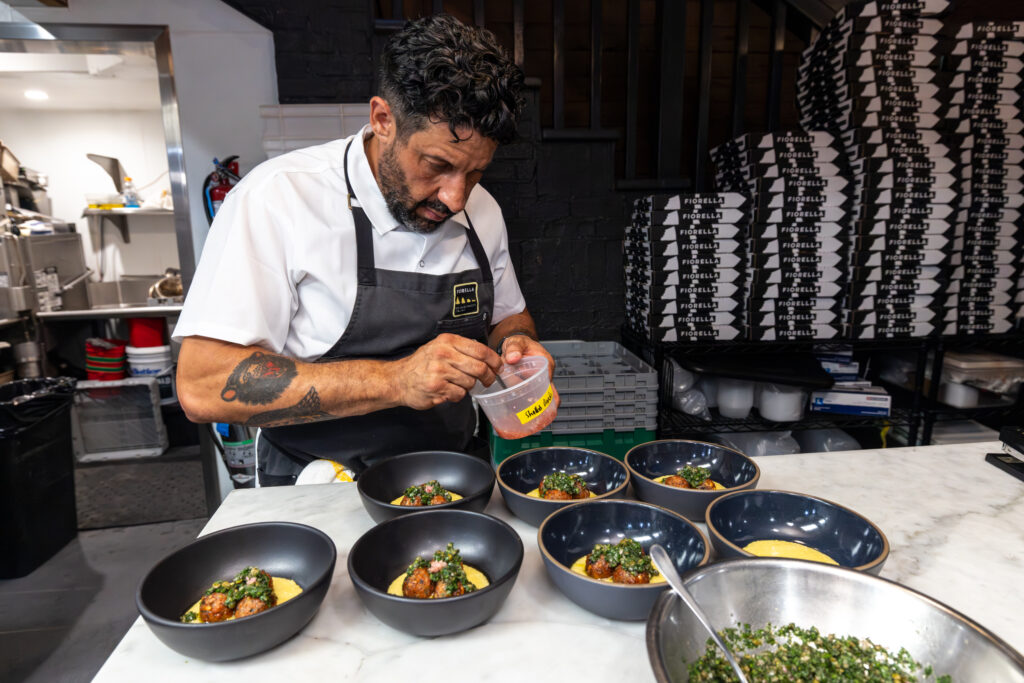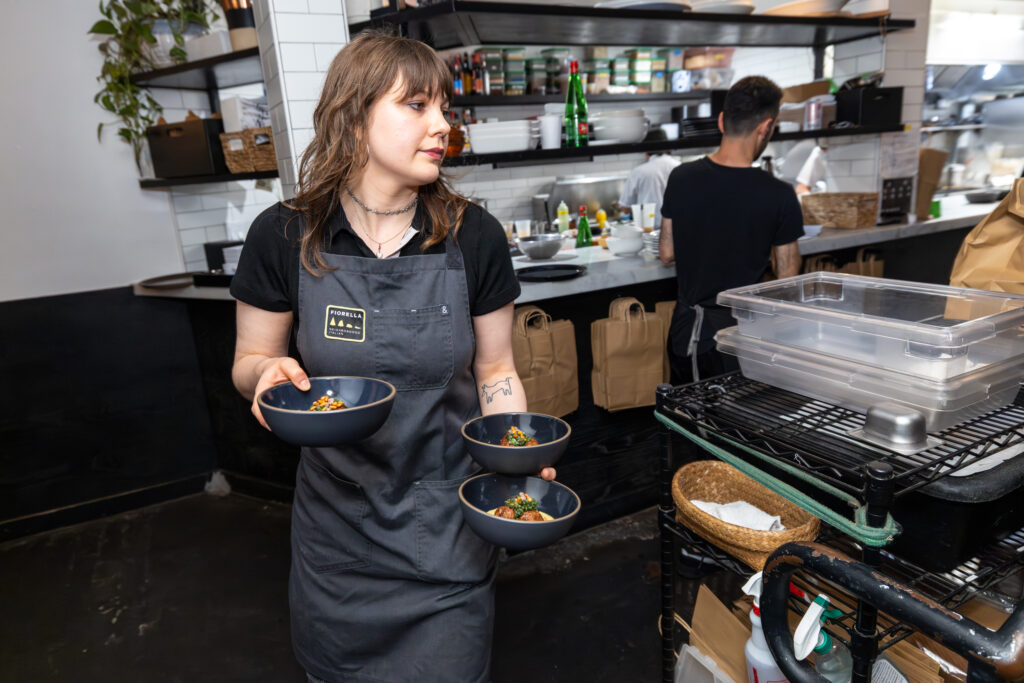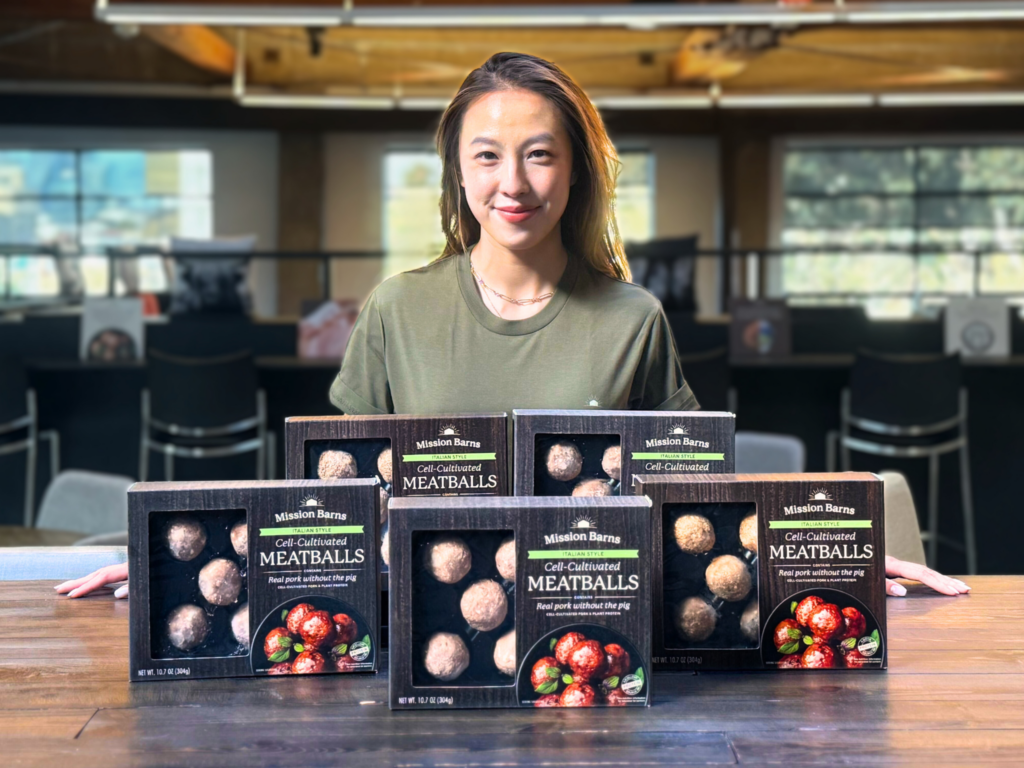
Californian startup Mission Barns sold its cultivated pork for the first time at a dinner in San Francisco, with dishes featuring its meatballs and bacon.
On Tuesday evening in San Francisco’s Sunset District, a small group of diners gathered for the first sale of cultivated pork anywhere in the world.
Food tech firm Mission Barns held the exclusive dinner at Fiorella, weeks after securing approval from the US Department of Agriculture (USDA) for its cultivated pork fat. The event was the first of three pop-up dinners, convening six industry leaders and one sweepstakes winner.
Fiorella served Mission Barns’s meatballs with Italian herbs and chilli, as well as in a Sicilian-inspired dish with raisins and pignoli, a creation of chef-owner Brandon Gillis. Diners also tried its Applewood-smoked bacon, which is layered with the startup’s cultivated fat.

“We put our full trust in Fiorella and chef Brandon, who has deep experience working with the best local, seasonal ingredients in a farm-to-table Italian style,” Mission Barns CEO Cecilia Chang tells Green Queen.
“After we walked him through our products, he created a menu that showcases them in true Fiorella fashion,” she says. “One highlight is his take on our meatball – he broke it apart, seasoned it with classic Sicilian ingredients like currants and pine nuts, and reformed it into something entirely new, while still letting our cultivated pork shine.”
Chang recently took over from Eitan Fischer as CEO to lead the company into its next phase of growth, with Fischer still actively involved as founder and board member.
The inaugural dinner will be followed by another event on September 24, where eight guests chosen from the public will be invited to try the cultivated pork dishes.
What goes into Mission Barns’s meatballs?

Founded in 2018, Mission Barns uses belly fat cells from American Yorkshire pigs and grows them in bioreactors to make its Mission Fat. This fat is then mixed with plant-based ingredients to make meatballs, bacon, and more.
This hybrid approach allows the startup to keep costs from soaring too high. And since fat is the primary flavour carrier in food, even a little bit goes a long way in replicating conventional meat.
“The great thing about our cultivated fat ingredient is that we’ve found even at low inclusion rates (i.e., single-digit percentages), there’s a really noticeable improvement on taste and mouthfeel, and our products have been able to match conventional meat on blind taste tests with consumers,” says Chang.
For example, the meatballs contain a base of pea protein and Mission Fat (which will appear on the label as a composition of purified water, cell-cultivated pork fat cells, and kosher salt).
These are complemented by coconut oil, textured pea protein, Italian seasoning, and methylcellulose. In addition, the meatballs contain less than 2% of natural flavours and colours, sodium gluconate, salt, potato starch, red wine vinegar, lactic acid, xanthan gum, and liquid seasoning.
Mission Barns is one of several startups taking the cultivated fat route. Hoxton Farms, Steakholder Foods, Genuine Taste, and Mosa Meat are doing the same – the latter has filed for regulatory approval in several geographies, including the EU, the UK, and Switzerland.

Restaurant rollout is a gateway for B2B strategy
At Fiorella, Gillis was “blown away” by the cultivated pork fat. “It had that same rich, savoury depth you get from traditional pork, but with a much smaller footprint,” he recalls. “Working with them on this launch lets us create dishes that are both familiar and groundbreaking.”
As part of its launch strategy, Mission Barns has been working with front-of-house teams to help engage and educate diners. “At our restaurant, we’re always looking for ways to honour tradition while embracing innovation,” says Isabella Hare, a server at Fiorella.
“Partnering with Mission Barns allows us to introduce our guests to a groundbreaking ingredient that’s not only delicious but also more sustainable for the future of food,” she adds.

The three pop-up dinners had always been intended as a limited in-market test to gauge consumer response and gather valuable feedback, according to Chang.
“While we’re excited to continue exploring opportunities with Fiorella and other chefs, our long-term strategy has always been B2B: licensing our technology so food partners and manufacturers can produce cultivated products at scale. These early sales and insights serve as proof points for potential partners,” she says.
“We are having conversations with chefs and restaurants across several US cities,” she notes, but adds: “In the near term, our focus remains on scaling our bioreactor platform rather than expanding restaurant distribution.”
The firm has designed a novel bioreactor technology that marks a departure from the single-cell suspension tanks of the biopharma sector, enabling more efficient, scalable, and cheaper production.

Cultivated meat bans ‘limit choice and economic opportunity’
Aside from its restaurant rollout, Mission Barns has announced a listing with Sprouts Farmers Market, which will make it the first cultivated meat product to be sold in a US supermarket.
In July, Chang told Green Queen that the company expects to roll out its meatballs at the retailer’s Oakland locations in Q3. “We’re working closely with Sprouts on timing, but we aren’t announcing specific rollout dates just yet,” she says now. “What we can share is that consumers in the Bay Area will be among the first in the country to find Mission Barns cultivated pork on grocery shelves.”
Though its current focus is on the US, Mission Barns is keeping an eye on markets that align with the US regulatory process, like Singapore and other Asian countries. It has secured $60 million in funding to date, and will now attempt to raise more capital to support commercial scale-up, strategic licensing, and global expansion.
“We are raising enough to fund our scale-up work for the next few years,” says Chang. “As everyone knows, the fundraising landscape for cultivated meat is a tough one right now.”
Indeed, in 2023, funding for cultivated meat startups fell by 75%, followed by another 40% drop in 2024, reaching just $137M. And in the first half of this year, this total dropped even further to $35M.

What will convince investors to bet on Mission Barns? “We have a differentiated approach focused on cultivated fat as a low-inclusion-rate flavouring ingredient, and our novel patented bioreactor has broad applications for products outside of just food – so that’s a really attractive point for investors,” highlights Chang.
It has been a big year for cultivated meat in the US. Aside from Mission Barns, Wildtype and Believer Meats have both also received a ‘no questions’ letter from the Food and Drug Administration – Wildtype’s salmon is already being served in several restaurants now (as seafood isn’t regulated by the USDA). At the same time, seven states have now banned cultivated meat, with Florida and Texas being sued for their decisions.
“We believe consumers should have the right to choose safe, delicious, healthy products that are approved by US regulators (in our case, the FDA and the USDA),” says Chang. “The bans are unfortunate because they limit choice, innovation, and economic opportunity in those states. That said, they haven’t slowed our plans – we’re focusing on states where cultivated meat is welcomed, starting here in California.”
The post Exclusive: Mission Barns Launches Cultivated Pork in World-First Dinner appeared first on Green Queen.
This post was originally published on Green Queen.